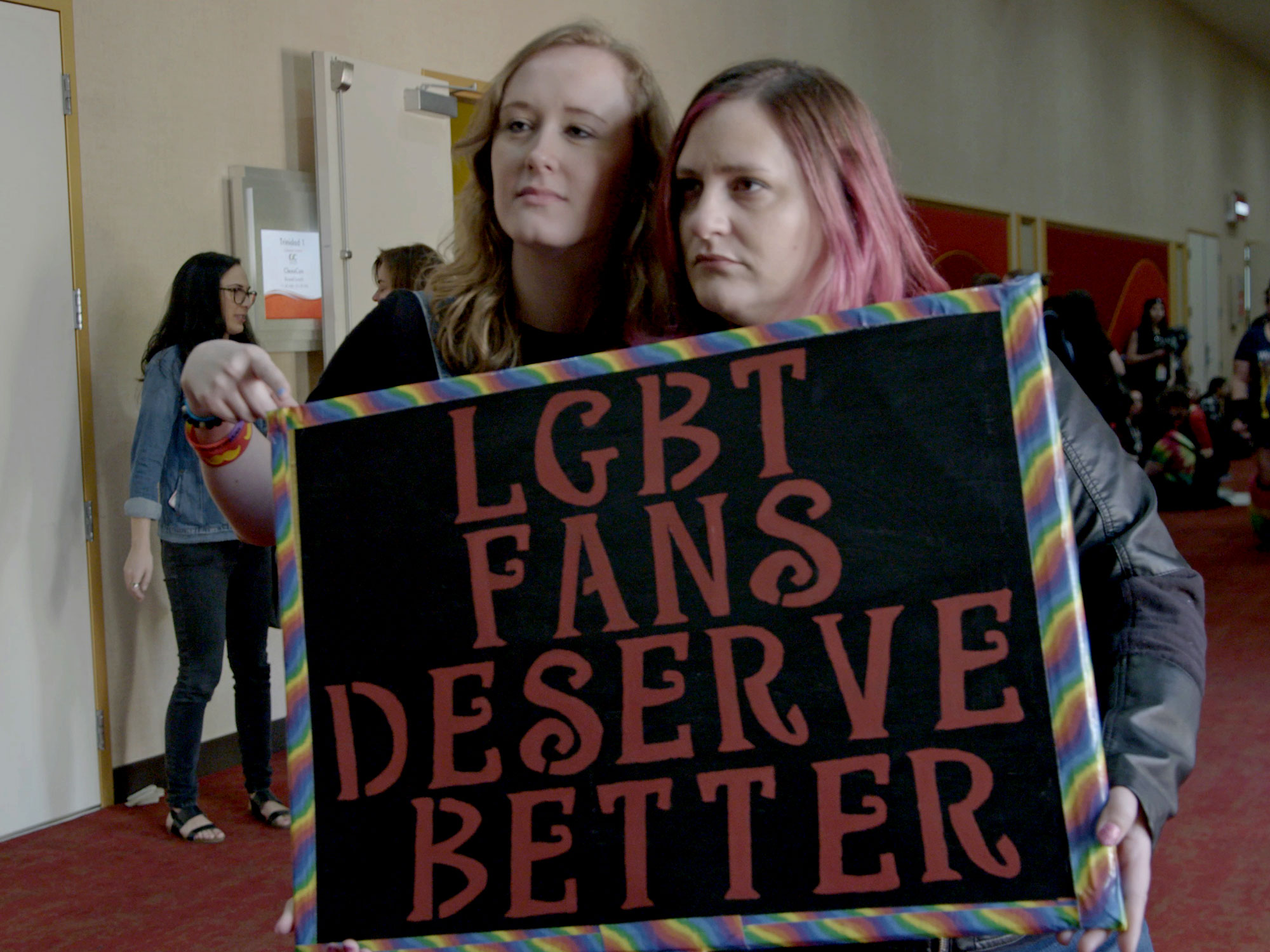
In 2016, some viewers started noticing a troubling trend in television. In shows like The Walking Dead, The 100, Empire and Orange is the New Black, lesbian and bisexual female characters started being killed off, rapidly and violently. “People started calling it the bloody spring of 2016,” explains a talking head in Gabrielle Zilkha’s documentary, Queering the Script.
Between 2015 and 2017, 62 queer female character died on scripted television. While lesbian and bisexual women only represented two-and-a-half per cent of regular characters on scripted television at that time, they represented 27 per cent of all character deaths between those years.
“It’s not like there aren’t many straight characters that die on television, nor are these characters real people, but when you’re queer and watching these shows which have queer death all over them, that sends a profound message,” explains Zilkha. “The thorough line of Queering the Script is that representation matters and that this is a big deal. So, like with most things in life, my motivation for making the documentary was to prove the cis hetero white men who met my pitches with ‘I don’t understand why this is such a big deal’ wrong.”
Queering the Script chronicles the changes in lesbian and queer representation on American television – from the subtext of Xena: Warrior Princess to Ellen DeGeneres coming out to the revelation of The L Word to the hit success of Glee – along with the queer, online fandoms that sprung up along the way. Originally, Zilkha was hired to make a much smaller documentary about the unexpected popularity of the web series Carmilla, but working with producers who were well versed in the world of fandom the project quickly became much bigger. “We realised there was a bigger story about representation and we wanted to explore why it matters so much to these people.”
By the time contracts were signed, Zilkha was already on a plane to ClexaCon, a queer fandom convention named after the ship name of two beloved The 100 characters, Clarke and Alexa. As the documentary is intended to be both a love letter to fans as well as an entryway into their world, Zilkha – an outsider to the world of internet fandom – was the perfect person to helm it.
“I learned so much about subtext and slash fiction and tropes like Bury Your Gays from these fans,” she says. “My method of dealing with not seeing myself represented had always been to not watch this stuff because I’m tired of seeing queer women represented in a way that has no bearing on my life. But I really came to appreciate fandom and the role fandom plays in pushing culture forward. “It’s not really even about the shows – it’s about the family and community that’s formed around them.”
Queering the Script demonstrates how powerful queer fandoms have become, particularly surrounding the treatment of queer characters. When The 100 violently killed off a lesbian character in 2016, fans felt betrayed, taking their outrage to Twitter. Interviewed in the documentary, the writer of that episode admits they got the traumatising death “dreadfully wrong.”
“Normally when we hear about fans in mainstream media, it’s about conspiracy theories or that they’re entitled or crazy,” adds Zilkha. “I wanted to tell a story that was respectful to these communities and also showed the real world implications of representation. What we see on television impacts how we behave and our attitudes. As queer people we know that happens and I think Black people and people of colour would also attest to that. For those who don’t have a gay or trans person in their lives, television serves as proxy friendship. That is profound in shaping how someone treats someone or empathises or even votes.”
Queering the Script is currently available to stream until 18 October as part of the Scottish Queer International Film Festival.
The post A new film explores the history of queer women on television appeared first on Little White Lies.
from Little White Lies https://ift.tt/34E1lnB
via IFTTT

0 Comments